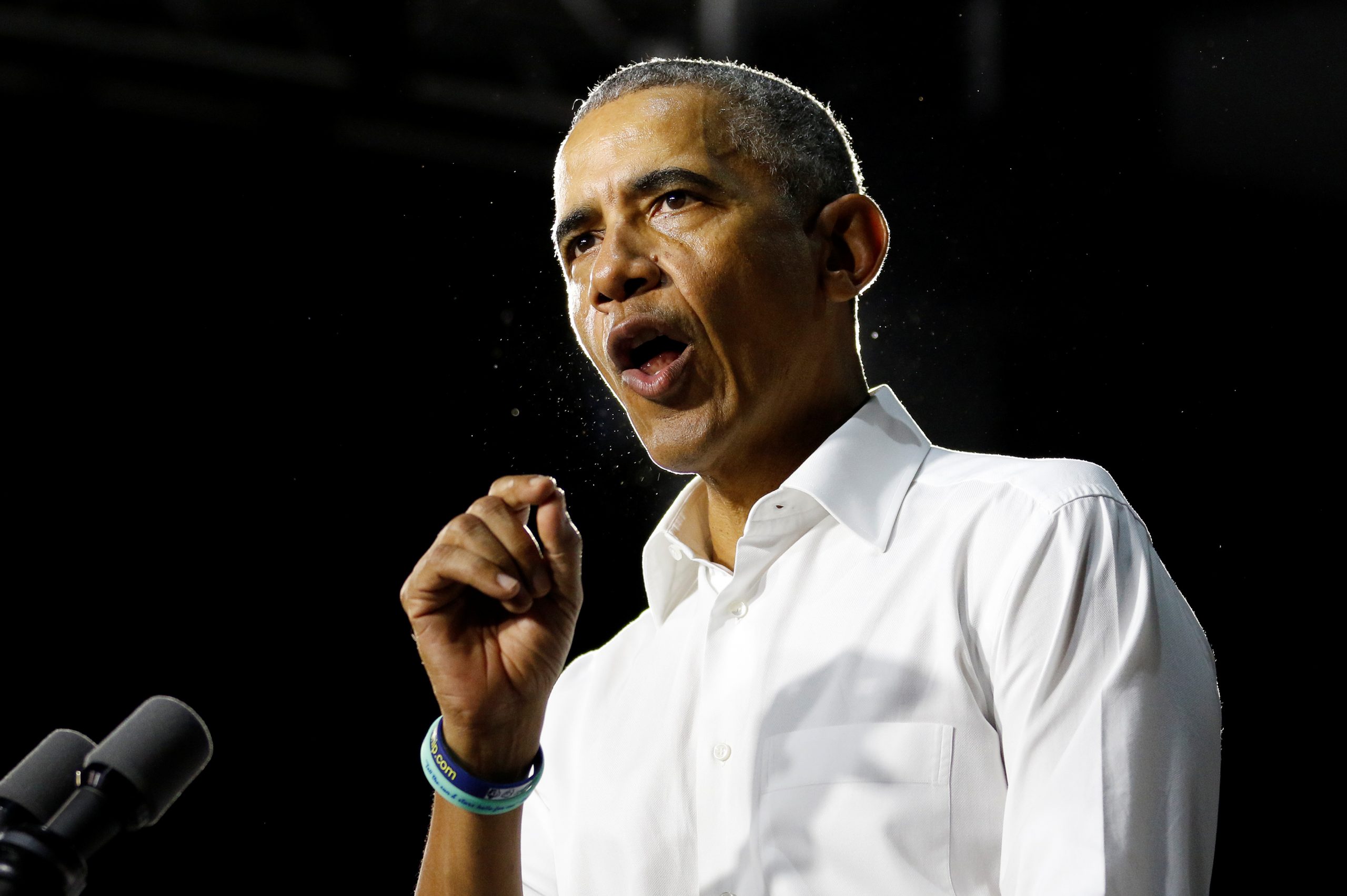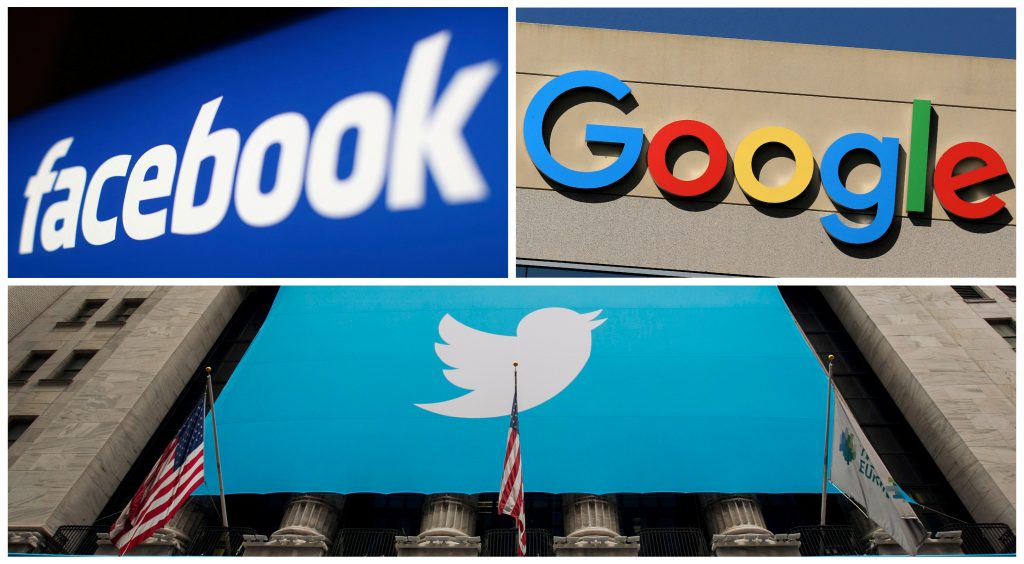Social media such as Facebook and Twitter have sought to limit the spread of misinformation and other content that violates their policies.
But, Republicans and Democrats on Capitol Hill are raising questions about how the platforms moderate content.
Republicans have accused social media companies of censoring conservative voices, while Democrats have suggested that the platforms have tried to appease conservatives and have been too lax in moderating content.
Former President Barack Obama told The Atlantic in an interview published on Monday that he believes the platforms’ attempts to cast themselves as “more like a phone company than they are like The Atlantic” have fueled the spread of disinformation and division.
Obama said he believes technology companies, which have allowed echo chambers to thrive and spread false or misleading information, risk harming American democracy.
“I think it is the single biggest threat to our democracy,” Obama said, adding, “Part of the common narrative was a function of the three major networks and a handful of papers that were disproportionately influential. You can’t put the genie back in the bottle. You’re not going to eliminate the internet.”
“Without this, it becomes very difficult for us to tackle big things. It becomes hard for us to say, ‘Hey, we have a pandemic here; it’s deadly; it’s serious; let’s put partisanship aside; let’s listen to Anthony Fauci because he’s been studying stuff like this for a long time. We may not get everything exactly right, because science works iteratively, but let’s hew as closely as we can to the science.'”
When asked if he holds social media companies for the change in how Americans shape their world view, Obama said, “I don’t hold the tech companies entirely responsible, because this predates social media. It was already there. But social media has turbocharged.”
“The degree to which these companies are insisting that they are more like a phone company than they are like The Atlantic, I do not think is tenable,” he continued.
He added, “They are making editorial choices, whether they’ve buried them in algorithms or not. The First Amendment doesn’t require private companies to provide a platform for any view that is out there.”

FILE PHOTO: Facebook, Google and Twitter logos are seen in this combination photo from Reuters files. REUTERS/File Photos/File Photo
He went on to say he believes there will have to be regulation and new corporate practices to make it harder for conspiracy theories and false information to be disseminated.
He warned, “If we do not have the capacity to distinguish what’s true from what’s false, then by definition, the marketplace of ideas doesn’t work. And by definition, our democracy doesn’t work.”
Specifically, he addressed the challenges of trying to have conversations with people about an issue, such as climate change, when the other individual holds a completely different view or does not believe that there is an issue, to begin with.
In the run-up to and after the election, social media companies have banned accounts, deleted posts, or added warnings to content that violated their misinformation or violence policies.
However, conservatives have alleged that they are being targeted for censorship and have been flocking to social media alternatives such as Parler, which is advertised as a “neutral platform for free speech.”


























 Continue with Google
Continue with Google